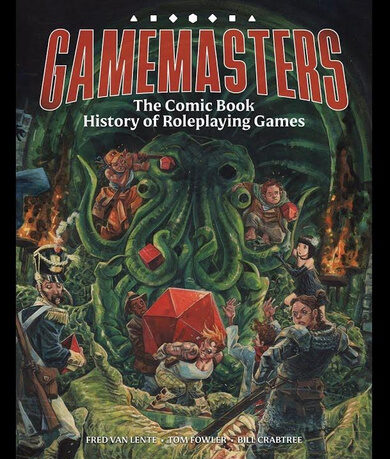We may earn money or products from the companies mentioned in this post.
Different kinds of games reward different abilities. Pictionary rewards players’ ability to draw recognizable clues and to guess the right answer from the clues other people draw. Poker rewards understanding the likelihood of winning with a particular hand, strategic betting, and bluffing. Candyland rewards the player with the best luck. I’ve talked before about the difference between strategy-oriented games that primarily reward understanding how the game rules work and other types of games where the rules are secondary to some other ability or talent (like trivia knowledge or throwing a ball through a hoop), usually in the context of my preference for role-playing games that reward creativity and storytelling ability rather than understanding of the rules.
While I tend to prefer to keep strategy gaming and story gaming mostly separate (I enjoy strategy games, but want something different out or role-playing), I can at least understand why some players prefer strategy-oriented RPGs or games that provide a mixture of strategy gaming and storytelling. It’s a matter of personal preference, and most of the wrong ways to have fun are already illegal. But the way role-playing games work leads to another kind of play that doesn’t really reward “rules mastery” so much as “rules fuckery.” This kind of gaming often uses the language strategy gaming, but it’s really something different.
Rules mastery, unlike rules fuckery, rewards actual gameplay. No matter how much time you spend memorizing chess strategies, that knowledge is only as useful as your ability to adapt them to the moves that your opponent makes. In a well-designed strategy game, it’s impossible to create an “unbeatable” strategy. Some strategies are harder to beat than others, but there’s always a chance of he killer strategy losing, either through the actions of other players or (in a game with random elements) through bad luck. Your chess gambit only works if your opponent falls for it and you can’t buy Boardwalk and Park Place if you never land on them. A strategy game that allows players to create a strategy that can’t be countered through gameplay is a flawed game design, and more rules tends to lead to more flaws. That’s why the best strategy games are the ones with very simple rules that provide a wide range of possible outcomes.
Rules fuckery turns flawed game design into a feature rather than a bug and (conveniently enough for game companies) is usually based on introducing new rules or playing pieces with the potential (and sometimes the explicit intent) to change how the game works. In order to maintain rules mastery, you have to buy the new books or game pieces and figure out how the new elements change the game. Its’ the “Mr. Suitcase” strategy of Magic deck building or the Games Workshop business model. At some point, “winning” the game becomes less about about how well you play the game or understand the rules than how much disposable cash you have lying around to buy new rulebooks and new miniatures and new expansion packs.
The storytelling element of role-playing makes RPGs ripe for rules expansions since it’s easy to bring things that were previously “off-screen” into the game, introduce new sub-systems that provide more depth than the core rules, or just add some new monsters or character classes or magic items. RPG expansions are also cheaper than expansions for most other games since you just need text and maybe some artwork. You don’t have to change the board, cast new miniatures, or create new playing pieces or cards. While not all rules expansions are intended to encourage rules fuckery, many of them do it unintentionally and a few companies have figured out that a half-assed supplement with a few well-placed game-breakers often sells just as well as (or better than) a well-crafted sourcebook that takes a lot more time and energy to create.






